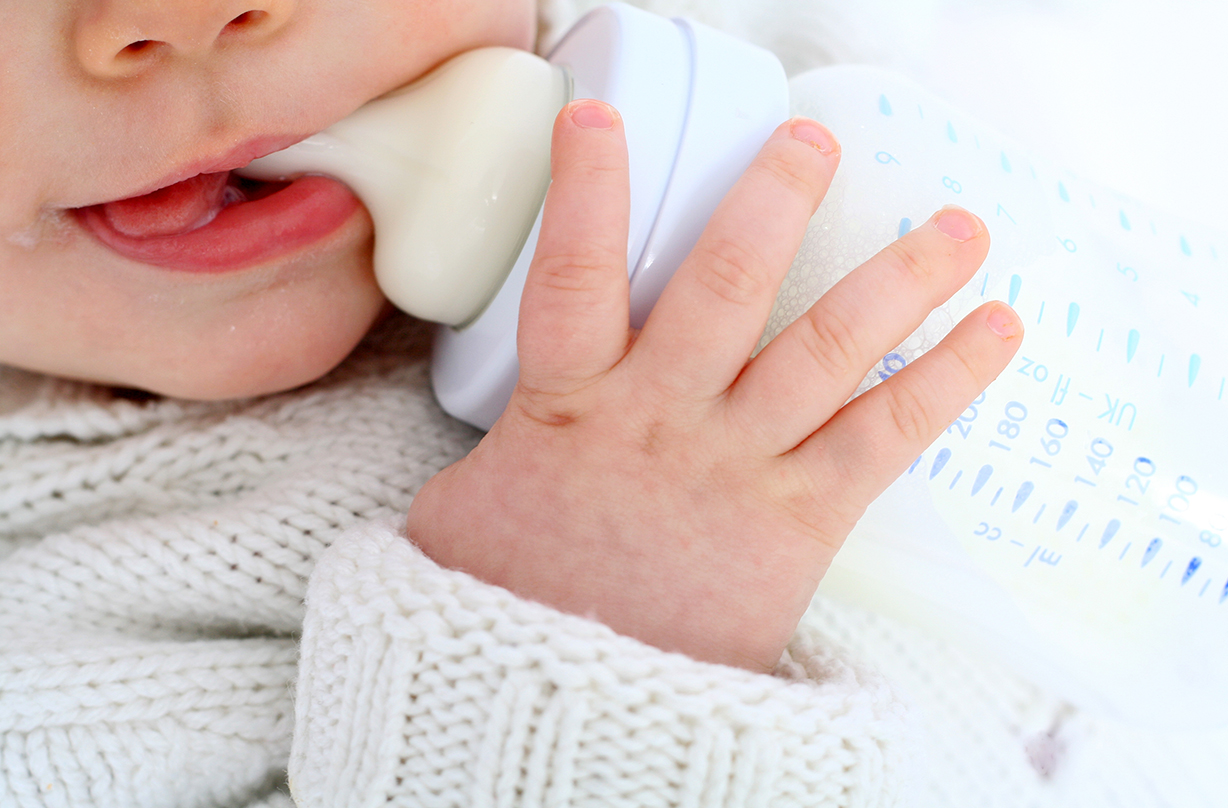Some baby formulas could contain more sugar than this soft drink


A new study has revealed that some baby formulas could contain worrying levels of sugar.
Research found that some ready-to-drink milk formulas made for babies under a year old, were found to contain nearly double the amount of sugar found in orange soft drink Fanta.
The study, conducted by Leeds Beckett University and King’s College London, found that some formulas contained as much as 8.7g added sugar in each 100ml measure.
This was compared to the 4.6g sugar found per 100ml of sweet orange fizzy soft drink Fanta.
Study leaders Gemma Bridge, of Leeds Beckett University, and Professor Raman Bedi, professor of transcultural oral health at King’s College London, warned that this is concerning as it could lead to a number of health issues for young children, including tooth decay and obesity.
This worry is emphasised by the fact that 60 per cent of the women who don’t breastfeed use this kind of formula milk.
GoodtoKnow Newsletter
Parenting advice, hot topics, best buys and family finance tips delivered straight to your inbox.
The study, which was published in the British Dental Journal, suggested that the formula milk contains high levels of sugar in order to emulate the natural sweetness of breastmilk, which can contain as much as 7g of sugar.

However, the sugar from breastmilk comes from natural lactose, which naturally feeds the needs of your baby.
Study leaders warned that the high sugar levels in formula could encourage babies to enjoy sweeter foods as they grow, which could obviously impact a healthy diet in the future.
‘Although it is sweet and high in energy, the sugar is mainly lactose and the content is specific to the needs of the growing infant,’ read the study.
MORE: Bottle feeding: How to bottle feed and switch from breast to bottle
‘Conversely, infant formula milks have a standardised make-up and contain added sugars such as corn syrup, which are added during production and are not found in breast milk.
‘This is bad for babies because high consumption of added sugars may contribute to tooth decay, poor diet and lead to obesity in children.’

Aleesha Badkar is a lifestyle writer who specialises in health, beauty - and the royals. After completing her MA in Magazine Journalism at the City, the University of London in 2017, she interned at Women’s Health, Stylist, and Harper’s Bazaar, creating features and news pieces on health, beauty, and fitness, wellbeing, and food. She loves to practice what she preaches in her everyday life with copious amounts of herbal tea, Pilates, and hyaluronic acid.